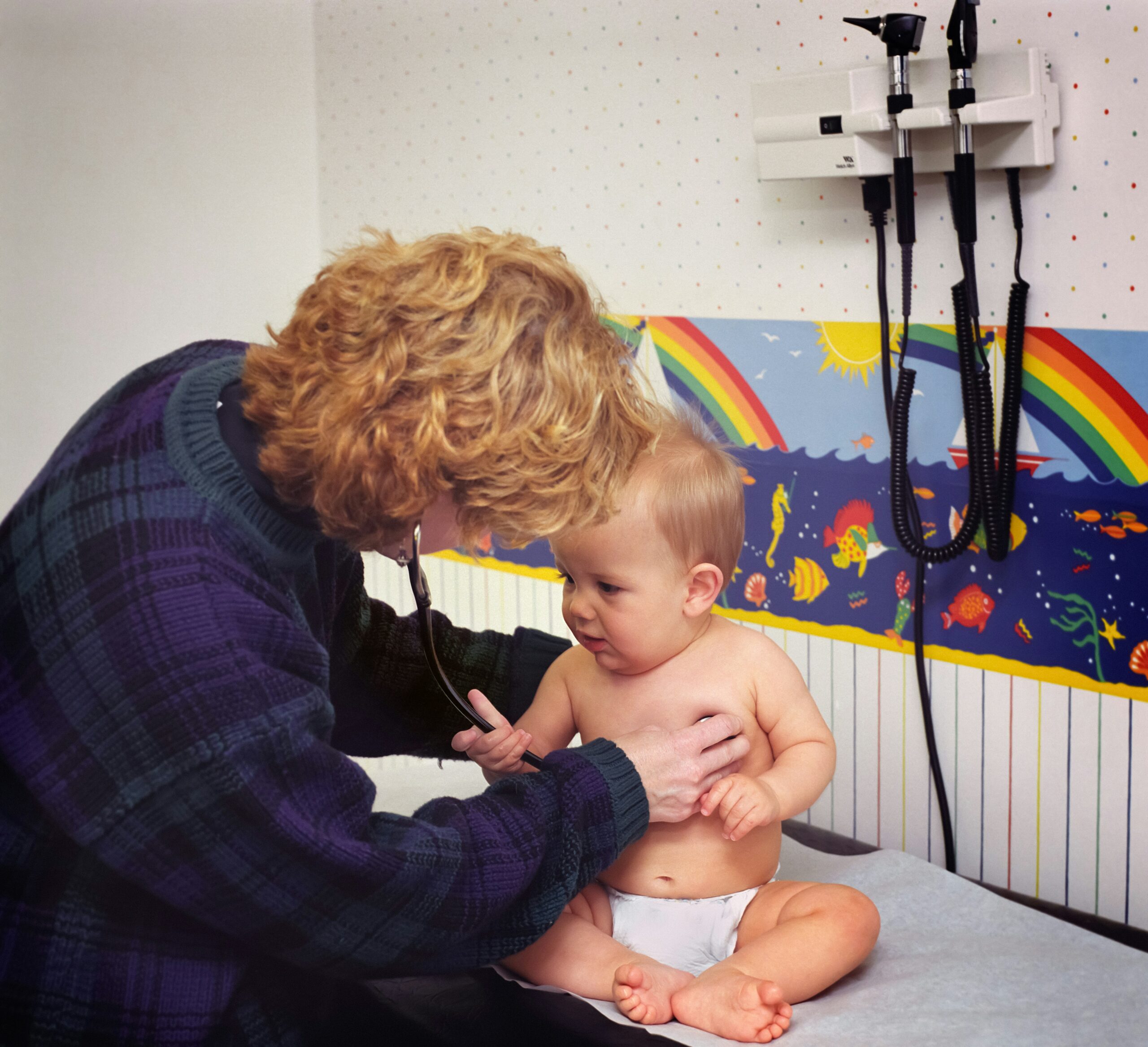The moment a child enters your life, new worries, questions, and hopes begin to multiply at an astonishing pace. What does it truly mean to be healthy in childhood? How can parents decipher the signals—those fevers, rashes, mood swings, or sudden growth spurts—that punctuate a child’s journey from birth to adolescence? The pediatrician stands as both guide and guardian, translating complex symptoms and behaviors into reassuring answers, blending medical insight with genuine compassion. Wondering how to detect early signs of concern? Confused about vaccinations, checkup schedules, or developmental benchmarks? Or perhaps the ever-changing landscape of emotional and behavioral health adds a layer of uncertainty. Clarity and calm reside in reliable expertise. Let’s unfold the essential roles and expertise of the pediatrician: preventive care, support through illness, guidance on growth, partnerships with families, collaboration with specialists, adaptation to new challenges, and much more.
Pediatrician: The Professional Dedicated to Children’s Health
Not all doctors are trained equally for the nuances of childhood. The pediatrician is a physician specifically educated to understand the physiological and behavioral intricacies distinct to babies, children, and teenagers. While a general practitioner cares for all ages, a pediatrician has dedicated years to mastering the intricacies of child development, immune system maturation, and emotional milestones unique to younger patients. Their work stretches from the very first hours of life through adolescence, sometimes into young adulthood, offering a steady hand for both routine surveillance and more unexpected bumps in the road.
Precision matters: pediatricians don’t just measure height and weight. They interpret growth curves, analyze patterns in psychomotor development (think: first steps, first words, fine motor skills), and pick up on subtle warning flags with the calm expertise that comes from seeing thousands of children. Early detection is a recurring theme—developmental delays, chronic diseases like asthma, or even social-emotional challenges are often identified by these vigilant observers before others notice a thing. The emphasis is always on prevention, early intervention, and holistic care.
Responsibilities and Services: What Does a Pediatrician Actually Do?
Think of the pediatrician as the conductor of your child’s health symphony. Preventive care—those well-child visits, regular growth monitoring, screenings, and vaccinations—creates a framework for physical and developmental wellbeing. At each visit, there is so much more than a physical exam: screening tools assess hearing and vision; nutritional advice is tailored to your child’s unique needs; developmental milestones are reviewed thoughtfully; and new concerns—everything from sleep patterns to toileting or emotional regulation—are openly discussed.
- Acute care: When a sudden illness strikes, whether it’s a stubborn cough or tummy pain, your pediatrician brings not just a clinical eye, but a reassurance rooted in science. Rapid diagnosis, evidence-based treatment, and follow-up all fit seamlessly into a plan designed for kids, not just smaller adults.
- Chronic disease management: Long-term health issues such as allergies, asthma, diabetes, or eczema require an integrated and evolving approach. The pediatrician builds comprehensive care plans, collaborates with relevant specialists (from pediatric endocrinologists for diabetes to pediatric psychologists when emotional health wavers), and keeps communication flowing among all members of your child’s health network.
- Family and behavioral guidance: Unsure how to address sleep problems, tantrums, or sibling rivalry? Is your child withdrawing at school, or struggling to form friendships? Pediatricians hold training in both physical and emotional health, drawing from the most recent advances in psychology and child psychiatry to support families through behavioral and emotional challenges—without judgment.
Training, Qualifications, and Pediatric Subspecialties
The pathway to becoming a pediatrician is extensive. After undergraduate education, future pediatricians complete four years of medical school, followed by at least three years in pediatric residency—a fast-paced immersion in every facet of childhood health, from newborn intensive care to adolescent mental health.
Some choose to pursue additional fellowship training in pediatric subspecialties, such as:
- Neonatology (for delicate newborns or premature babies)
- Pediatric cardiology (specialized in children with heart conditions)
- Pediatric neurology (dealing with disorders affecting the brain, nerves, or muscles)
- Pediatric endocrinology (focusing on hormonal and growth issues)
- Pediatric hematology-oncology (caring for children with blood disorders or cancer)
Regardless of specialty, all pediatricians are committed to continuous medical education, attending conferences, participating in research, and staying abreast of ever-changing medical guidelines.
Everyday Practice Settings: Where and How Pediatricians Support Families
Families find pediatricians in a spectrum of settings, each adapted to the needs and rhythms of childhood:
- Private clinics: Regular checkups, guidance for common concerns, management of minor illnesses or growth monitoring—all through an ongoing relationship with a familiar and trusted provider.
- Hospitals: For emergency care, complex medical conditions, surgeries, or critical illness, hospital-based pediatricians collaborate within multidisciplinary teams, ensuring that specialized expertise is available every hour of the day.
- Maternity wards: Newborns receive their first thorough assessments only hours after birth from pediatricians, establishing that initial bond of trust and reassurance.
- Community health centers: Accessible care, community-based health education, screening clinics, and even free or low-cost services for families who need extra support—all facilitated by pediatricians deeply embedded in the fabric of their communities.
- Telemedicine: A modern tool gaining ground rapidly—consultations via video or secure messaging can offer quick advice, chronic condition management, and reassurance, particularly in less urgent contexts. However, pediatricians always emphasize that hands-on physical exams remain irreplaceable for infants and acute issues.
Surveillance, Screening, and Prevention: The Core Mission
Children’s health is a moving target, developing at a dizzying pace. Pediatricians provide continuous surveillance: tracking physical growth not just in numbers, but in patterns; using formal screening tools to detect early signs of neurodevelopmental conditions like speech or language delay; and staying alert for signals of medical or social vulnerabilities.
- Regular checkups: The schedule is carefully mapped—monthly in infancy, then a gradual shift to every few months, then yearly assessments. Did you know these well-child visits are not just paperwork? They’re structured to optimize timing for vaccines, early detection of potential problems, and reinforce good routines.
- Preventive medicine: Discussions about nutrition, sleep hygiene, accident prevention, sun safety, and emotional wellness are integral—never rushed.
- Personalized advice: Should you wake a baby with jaundice for feeds? How much screen time is appropriate for a preschooler? Each family receives nuanced, practical answers rooted in up-to-date science.
Emotional, Social, and Behavioral Health—a Pediatrician’s Broad Approach
Health isn’t confined to physical observations. The pediatrician assesses family dynamics, supports parents during moments of doubt, and identifies psychological or behavioral issues requiring specialized care. Anxiety, mood changes, behavioral regression after major life events—these topics aren’t dismissed. Early recognition, gentle support, and when needed, referral to child psychologists or therapists, all fall within the pediatrician’s day-to-day work.
Notably, parents are encouraged to express concerns freely. The emphasis is on open communication—a partnership in which questions are welcomed, not rushed away.
Managing Long-term and Chronic Conditions
Chronic illnesses in childhood can reshape daily life for the entire family. The pediatrician’s expertise creates a solid foundation: orchestrating coordinated care, organizing regular evaluations, acting as a liaison between hospital-based subspecialists and school nurses, ensuring up-to-date action plans for conditions like asthma, and supporting parents as they develop new routines at home.
Living with diabetes, for example, doesn’t stop at insulin management—your pediatrician will offer advice on diet, activity, social challenges, and milestone celebrations (like attending sleepovers or camps). Each aspect is addressed with empathy and attention to the whole child—not just the diagnosis.
When to Consult a Pediatrician? Recognizing the Right Moments
Uncertainty thrives in the world of childhood illnesses. Knowing when to seek professional advice can feel daunting. Persistent fever, weight loss, vomiting, feeding difficulties, odd breathing, unexplained rashes, stumbling, or changes in social or communication patterns—these merit a visit. There are no foolish questions; vigilance is an act of care, not overreaction.
Alongside regular checkups, every parent should feel empowered to schedule a visit for anything that unsettles them. The health booklet (or digital record) acts as a timeline of visits, treatments, and milestones—a valuable communication tool.
When is a family physician sufficient, and when is a pediatrician preferred? For most garden-variety colds or scrapes, both are qualified to help. Yet, persistent, atypical, or unresolved symptoms benefit from a pediatrician’s singular training in the physiology and psychology of children. Collaboration and mutual respect between doctors only enhance the quality of care.
Choosing the Right Pediatrician: Building a Long-lasting Relationship
Choosing a pediatrician involves weighing accessibility, communication styles, proximity, office organization, and personal recommendations. Satisfaction often hinges on clear explanations, mutual respect, and the ability to listen without rushing. For some families, teleconsultations offer invaluable flexibility; for others, the steady rhythm of in-person appointments brings comfort.
A trustworthy pediatrician creates the conditions for ongoing partnership, so parents can ask questions without hesitation and participate actively in care decisions. It’s not about imposing a single course of action, but respecting family values, cultural expectations, and practical realities.
The Pediatrician’s Visit: What to Expect
Stepping into the pediatrician’s office, the flow is carefully structured yet adaptable. The exam is thorough yet gentle, encompassing weight, height, head circumference (for younger children), as well as in-depth review of developmental milestones. Vaccinations—always based on current immunization schedules—are administered thoughtfully.
Before arriving, it helps to jot down a list of worries or observations. Health records are essential. Open conversations about symptoms, habits, sleep patterns, and social changes encourage comprehensive care. Afterward, following instructions, monitoring progress, and seeking clarification if doubts linger are keys to impacting your child’s wellbeing positively.
Supporting Development and Educating Parents: The Broader Mission
Each visit is a teaching moment. Pediatricians empower parents with knowledge: the rationale for checkup schedules, the science behind nutritional requirements, practical home safety tips, and realistic expectations about what’s “normal” in child development.
Your child’s medical record is more than a collection of numbers and vaccine dates. It’s a tool for ensuring continuity and making sense of trends over time. Meanwhile, modern digital platforms and apps provide additional ways for parents to track growth, ask questions, and stay updated on changes in evidence or recommendations.
Collaboration and Multidisciplinary Networks
Solo practice in pediatric medicine is increasingly rare. The pediatrician often works as part of a collaborative ecosystem: speech therapists, physical and occupational therapists, child psychiatrists, nutritionists, social workers—each playing a unique role in comprehensive, family-centered care. Seamless communication between all caregivers ensures no information is overlooked, and the journey feels more coherent and less overwhelming for everyone involved.
Adapting to Advances and New Challenges in Pediatric Care
Child health is not frozen in time. The pediatrician must constantly adapt—to telemedicine, to the rising prevalence of chronic diseases like allergies or obesity, to novel innovations in digital health, and to families’ evolving needs for accessibility and flexible communication. Specialized hospital units handle rare diseases and neurodevelopmental issues, while research groups generate new insights for clinical practice. Through it all, the pediatrician remains the bridge—connecting rigorous science with daily family life.
Evidence-based information about complementary practices (such as pediatric osteopathy or homeopathy) is offered when families inquire, with transparency about what is backed by science and what requires more study. The clinical evaluation, however, remains paramount, and any alternative approach is framed in the context of child safety and established care.
Specialties and Innovations in Pediatric Medicine
The world of pediatric care extends into diverse fields, including:
- Neonatology: Management of complex or vulnerable newborns
- Pediatric cardiology: Heart care specific to children
- Pediatric neurology and psychiatry: Brain development, mental health, and behavior
- Pediatric pulmonology, endocrinology, hematology, nutrition, rheumatology, nephrology: Each attends to the intricate health puzzles unique to their specialty
Some pediatricians pursue academic paths—participating in research, publishing guidelines, or training the next generation of doctors. Others serve in public health, advocating for preventive medicine and equal access to care.
Key Takeaways
- The pediatrician stands as a specialized partner, supporting children’s health across physical, developmental, and emotional spheres, from newborn days through adolescence.
- Preventive strategies—regular checkups, vaccinations, ongoing screenings—work hand in hand with expert treatment for both acute and chronic conditions, guided by a deep understanding of child physiology and psychology.
- Empathy, communication, and collaboration across multidisciplinary networks enhance continuity and coherence, so families never feel lost in the healthcare system.
- Addressing the full scope of childhood—illness, growth, development, mental wellbeing—means embracing both medical science and the lived realities of parents.
- Practical resources, digital tools, and trusted questionnaires are now available for families seeking additional support at home. For customized advice and free pediatric health questionnaires, consider downloading the Heloa app to help nurture your child’s health and development with confidence.
Questions Parents Ask
What age should my child stop seeing a pediatrician?
Most pediatricians care for children from birth up to age 18, and some even see young adults until they’re 21, especially for continuity and comfort. The transition to an adult doctor can vary depending on your child’s development, health needs, and personal preference. Rassurez-vous, this change usually happens smoothly with the support and advice of your pediatrician, who can guide you and your child when the time feels right.
Can a pediatrician treat more than just physical illnesses?
Absolutely. Pediatricians offer much more than just treatment for colds or injuries. They are trained to recognize, support, and address emotional, behavioral, and developmental needs as well. Whether your child is experiencing anxiety, social challenges, or learning difficulties, the pediatrician can listen, offer strategies, and connect your family with further support if needed. It’s all about caring for the whole child, in every sense.
How do I choose the right pediatrician for my family?
Finding a pediatrician that suits your family’s unique needs involves considering a range of factors: location, office hours, communication style, and their approach to both routine care and unexpected issues. Many parents find it helpful to meet with a pediatrician before the baby is born or before switching. Ask questions, express your concerns, and see how you feel about the interaction. Feeling comfortable and heard is just as important as the medical expertise offered.

Further reading:









